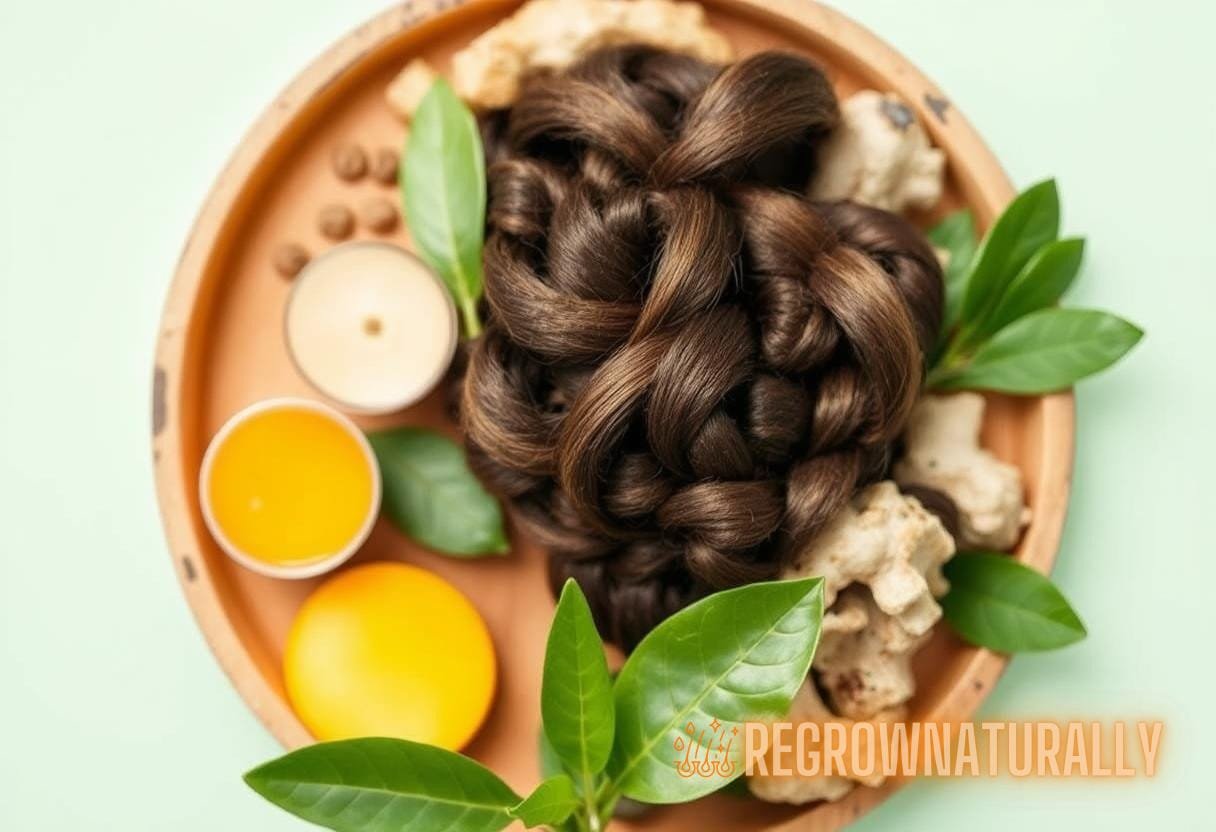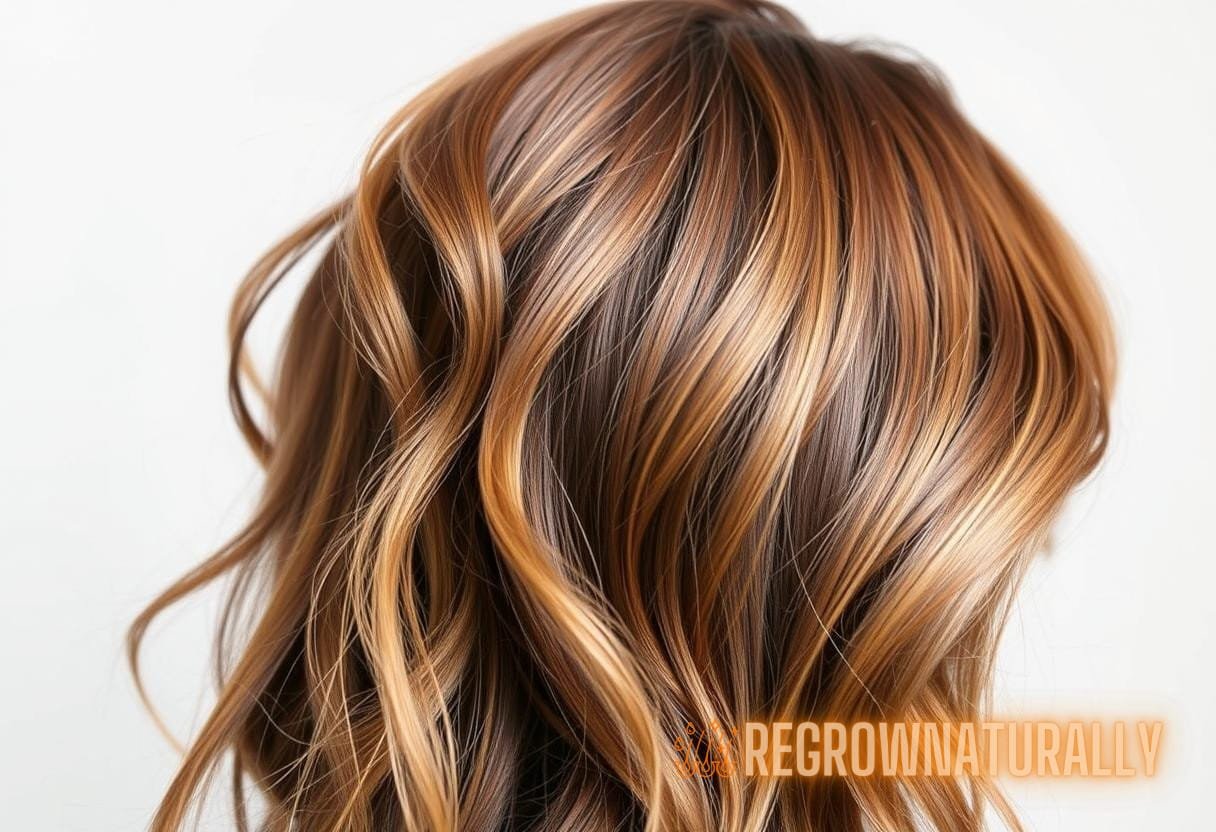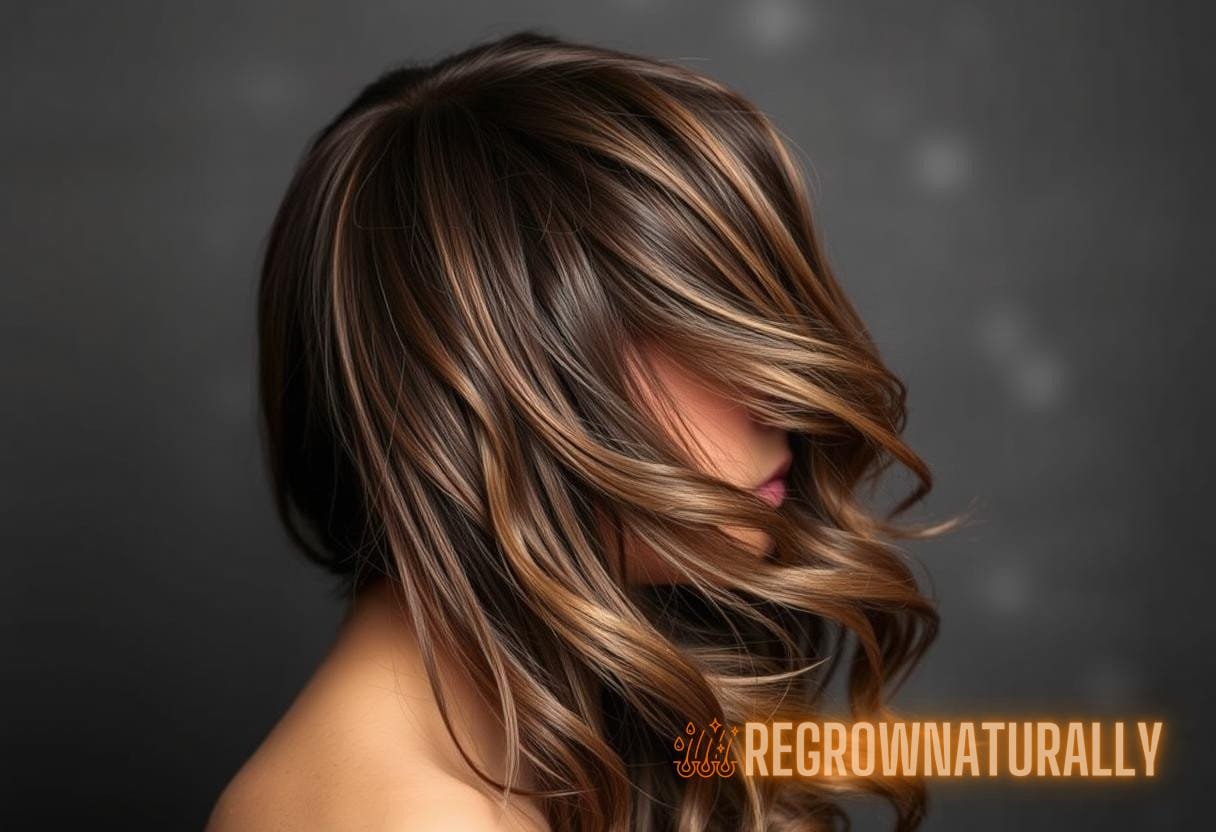Unlocking the Power of Plant-Based Phytochemicals: Innovative Homemade Solutions for Accelerating Hair Growth
In recent years, there has been a significant shift towards the use of natural ingredients in hair care, particularly through the incorporation of plant-based phytochemicals. These bioactive compounds have garnered attention for their potential effects on hair growth, promoting both scalp health and follicle vitality.
Understanding Phytochemicals and Their Role in Hair Growth
Phytochemicals are naturally occurring compounds found in plants that possess properties beneficial to human health. Among the various categories of phytochemicals, flavonoids, terpenoids, and polyphenols have shown promising results in promoting hair growth and improving scalp conditions.
What Are Phytochemicals?
Phytochemicals serve various functions within the plant kingdom, including antioxidative, anti-inflammatory, and antimicrobial properties. Within the context of hair care, these compounds can:
- Stimulate blood circulation in the scalp
- Strengthen hair follicles
- Enhance hair shaft growth
- Maintain scalp health
Studies have indicated that specific phytochemicals can indeed act as a plant-based hair boost. For instance, a study published in the Journal of Ethnopharmacology highlighted the hair growth-promoting effects of certain flavonoids found in plants like Ginkgo Biloba and green tea.
Top Plant-Based Ingredients to Enhance Hair Growth
Several plant-based ingredients are known for their remarkable traits regarding hair health. Below are some of the most effective phytochemicals that you can incorporate into your DIY hair treatments:
1. Aloe Vera
Aloe Vera is a powerhouse of vitamins and minerals that nourish the scalp. Its potent enzymes can help in removing dead skin cells and promote healthy hair growth. Key points include:
- Contains proteolytic enzymes that help repair dead skin cells.
- Rich in vitamins A, C, and E, contributing to scalp nourishment.
- Aloe’s soothing properties help to reduce scalp irritation.
2. Rosemary Oil
Rosemary oil is renowned for its ability to stimulate hair follicles and improve blood circulation. Research published in the Journal of Cosmetic Dermatology noted that rosemary oil was as effective as minoxidil for increasing hair count.
- Contains rosmarinic acid, which has anti-inflammatory properties.
- Rich in antioxidants, promoting scalp health.
- Aroma contributes to reduced stress levels, indirectly aiding hair growth.
3. Neem
Neem leaves and oil are celebrated for their antifungal and antibacterial properties, essential in maintaining scalp health.
- Effective against dandruff and scalp infections, which can hinder hair growth.
- Rich in fatty acids that nourish follicles.
- Promotes overall hair vitality.
4. Green Tea
Green tea is loaded with polyphenols, particularly epigallocatechin gallate (EGCG), which has been linked to hair growth stimulation.
- EGCG promotes hair follicle growth by reducing DHT levels.
- Antioxidants help with hair restoration.
- Can be used as a topical treatment.
5. Ginseng
Ginseng is often touted for its health benefits, but its effects on hair growth should not be overlooked. A study published in the Korean Journal of Medical Sciences explored ginseng’s efficacy in stimulating hair growth through increased dermal papilla cell proliferation.
- Rich in ginsenosides, promoting hair regeneration and repair.
- Increases blood flow to the scalp.
- May also help prevent hair loss.
DIY Treatments: Recipes for Plant-Based Hair Boosting Solutions
Now that we have a solid understanding of phytochemical benefits, let’s delve into specific DIY treatments infused with these plant-based wonders. Below are some innovative homemade solutions aimed to provide a substantial plant-based hair boost.
1. Aloe Vera and Rosemary Hair Rinse
This invigorating hair rinse combines the nurturing properties of Aloe Vera and the stimulating effects of rosemary oil.
Ingredients:
- 1 cup aloe vera gel
- 5 drops rosemary essential oil
- 1 cup water
Instructions:
- Blend the aloe vera gel with water until smooth.
- Add the rosemary essential oil and mix thoroughly.
- Apply to clean, damp hair and massage into the scalp.
- Leave on for 30 minutes before rinsing with water.
2. Neem Oil Scalp Treatment
This potent mixture provides relief from dandruff and promotes a clean, healthy scalp environment.
Ingredients:
- 2 tablespoons neem oil
- 1 tablespoon coconut oil
Instructions:
- Mix neem oil and coconut oil in a bowl.
- Apply directly onto the scalp, parting hair to ensure full coverage.
- Massage gently for 5 to 10 minutes.
- Leave it on for at least 1 hour or overnight and wash out with a mild shampoo.
3. Green Tea Hair Growth Serum
This serum combines the strengthening properties of green tea with nourishing oils.
Ingredients:
- 1 cup brewed green tea (cooled)
- 2 tablespoons almond oil
- 5 drops peppermint essential oil
Instructions:
- Mix green tea, almond oil, and peppermint oil in a spray bottle.
- Spray onto damp hair post-wash, avoiding the scalp.
- Leave for a few hours or overnight before rinsing.
4. Ginseng Infused Oil
This oil is designed to boost circulation in the scalp while rejuvenating hair strands.
Ingredients:
- 2 tablespoons ginseng powder
- 1/2 cup olive oil
Instructions:
- Combine ginseng powder and olive oil in a small pot.
- Gently heat (do not boil) and let it steep for 30 minutes.
- Strain the oil and transfer it into a bottle.
- Apply a small amount to the scalp, massaging well.
- Leave for 2-3 hours or overnight before washing out.
Scientific Studies Supporting the Efficacy of Plant-Based Ingredients
Research on the effects of plant-based ingredients on hair growth has been increasing over the past few decades. Many studies have explored various phytochemical properties, revealing how they can genuinely support hair health.
Therapeutic Effects of Ginkgo Biloba
A study published in the Journal of Ethnopharmacology indicated that the extract of Ginkgo Biloba promoted hair regrowth in individuals experiencing androgenetic alopecia. The study showed a significant increase in the number of hair follicles, leading to denser hair.
Antioxidative Properties of Green Tea
The antioxidative effects of green tea have been thoroughly studied, with scientists concluding that EGCG not only helps in inhibiting the formation of DHT but also assists in revitalizing hair growth in subjects suffering from hair loss.
The Science of Scalp Health and Hair Growth
An important aspect of hair growth is maintaining a healthy scalp. The scalp acts not just as a base for hair but also plays a crucial role in facilitating growth and nourishment. Poor scalp health can directly contribute to hair loss.
Benefits of Improved Scalp Circulation
Many of the plant-based compounds discussed earlier work by enhancing blood circulation to hair follicles. Improved blood flow results in better nourishment for hair roots, encouraging thicker, healthier hair growth.
A Natural Approach to Prevent Dandruff
Maintaining a clean scalp devoid of dandruff and buildup contributes positively to hair growth. Neem oil, combined with regular scalp massages, can prevent the growth of fungus and bacteria, which often lead to dandruff and irritation.
Integrating Plant-Based Treatments into Your Hair Care Routine
Consistency is key when it comes to using DIY hair treatments. Here are some tips on integrating plant-based solutions into your hair care routine effectively:
- Perform a patch test before applying any new treatment to avoid allergic reactions.
- Incorporate treatments into your routine 1-2 times a week for optimal results.
- Combine topical treatments with a healthy diet rich in vitamins and minerals to enhance overall hair growth.
Conclusion: Embracing Nature for Healthy Hair Growth
The integration of plant-based phytochemicals into hair care routines represents a promising approach to not only enhancing hair growth but also fostering overall scalp health. Through an understanding of these powerful compounds and their application in DIY treatments, anyone can work towards achieving luscious, vibrant hair. Remember, natural treatments may take longer to show results, but their long-term benefits often outweigh the effects of synthetic solutions.
For additional insightful tips on natural hair treatments, explore our comprehensive guides on DIY Hair Care Tips and discover the various Benefits of Natural Ingredients. These resources will further enhance your knowledge and empower you in your hair care journey.



